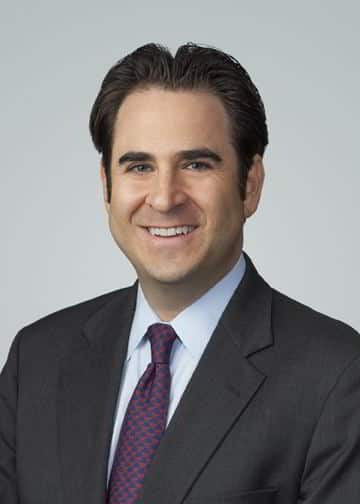- Admission to the New York Bar is a critical final step in embarking on your legal career, and even small errors or omissions may have serious consequences.
- A checklist can help you address essential components of your NY Bar application.
- Consistency, transparency, and accuracy about your personal and professional history are fundamental throughout the application process.
- Getting professional guidance from a skilled admissions attorney like David A. Lewis makes a major difference in successfully preparing your application and navigating complex background issues.
Finishing law school. Passing the bar exam. As stressful as these steps in establishing your law career can be, the process doesn’t end there. To be admitted to practice, there is one more critical item on your timeline: your NY Bar application.
Ensuring you unfailingly adhere to the NY Bar application instructions (meeting all applicable deadlines and requirements) is a daunting task, even if you don’t anticipate any problems. And when your history includes matters that warrant additional review, the stakes rise. Each step demands an even more careful approach.
This NY Bar application checklist touches on only some of the critical points of the process, so you know what to expect. By walking through these steps, you’ll gain better insight into the complexities of bar admission and why it may be in your best interest to secure professional guidance.
1. Compile Your Background Details
In this step of the NY Bar application checklist, you’re expected to provide a thorough account of your personal, educational, and professional background. This includes:
- Education
- Employment History
- Military Service
- Professional Licenses
- Legal & Disciplinary History
- Financial History
While this portion of the NY Bar application checklist seems straightforward, making even small errors or omissions in disclosing can be costly. Sealed charges, informal disciplinary actions, long-forgotten traffic violations; anything about you that’s on and off record may be discovered as your application is evaluated.
Providing inconsistent or incomplete information is treated as a red flag. Often, failure to disclose is as detrimental to your application as the issue itself.
Getting guidance from an ethics attorney at this early stage can be crucial for ensuring small issues don’t turn into big problems. It can make all the difference in keeping your NY Bar application timeline on track.
2. Draft Your Character and Fitness Rider
Very few applicants have completely spotless backgrounds. The next step on the NY Bar application checklist, the Character and Fitness Rider, is available as a means to address any concerns you disclosed in your background details.
Are Addenda Mandatory?
The NY Bar application instructions are clear: These explanations of certain disclosures are NOT optional and should clearly address the concern that the Committee will be most focused on.
Is There a Set Format?
There’s no universal example to follow when drafting a Character and Fitness Addendum. Every situation is different. Taking a boilerplate approach could backfire, as could submitting a sloppy, overly emotional addendum.
If you need to include addenda to complete your NY Bar application checklist, this is the point where consulting an experienced admissions lawyer can save you months of stress. You’ll benefit enormously from professional insight into your circumstances and receive the guidance you need to craft a compelling addendum that strikes the right tone.
3. Secure Strong References
The previous points on the NY Bar application checklist are all based on your own word. References serve as independent voices that address your character, including your integrity, reliability, and professionalism.
Choose Your References Wisely
Often underestimated, the step of providing references that enhance your credibility is among the most impactful of the NY Bar application requirements. When choosing yours, don’t make these common mistakes:
- Using only personal friends.
- Using people who sound impressive, but to whom you only have a tenuous connection.
- Using people who might contradict your own presentation of your background.
An experienced admissions attorney can be invaluable at this step. Naturally, you want to paint yourself in the best possible light, which is, of course, important, but doing so by choosing weak references can severely undermine the credibility you’re trying to establish.
Identify people who will strengthen your application, and seek advice from an experienced attorney who has been through the process and knows what to expect.
4. Check for Consistency

At this point, it may feel like you’re coming down the home stretch on your NY Bar application checklist. But confirming that your application consistently presents your information is key. It’s also important to ensure consistency with what the committee will uncover during its own research.
Comparisons
The details you provide in complying with the NY Bar application instructions must be consistent and complete. They must also align with previous disclosures you’ve made. For instance, the disclosures you made when applying to law school will be compared to what you are disclosing now.
- Nothing can be omitted.
- Details cannot be changed.
- Timelines and outcomes must be consistent.
Even the smallest changes of phrasing or other innocent mistakes can appear evasive or dishonest.
You may realize that you left something out of your law school application that you are disclosing now as part of the NY Bar application requirements. The safest way forward? Get legal guidance before amending your application. Don’t try to “fix” this alone. Without insightful advice, you could make the situation worse.
5. Prepare for the Next Steps
You’ve followed the NY Bar instructions and submitted your application, and your checklist is complete. If you receive a request to provide missing or incomplete information, be sure to comply with deadlines so your NY Bar application timeline stays on track.
Your application is now under review. The committee may conduct a thorough background check, in which all records will be verified. Your references may be contacted, and you may be scheduled to appear in person for the next step.
Interview vs. Hearing
Many candidates are scheduled for a character and fitness interview with one or more committee members. Your professionalism and preparedness for this face-to-face meeting are paramount. Conducting mock interviews with an experienced attorney often proves invaluable for getting through the meeting confidently.
If your background raises significant concerns, or if your interview failed to clarify lesser issues, you may be scheduled for a hearing. While this step may have been avoided with proper coaching and guidance, once you reach the point of referral to a formal hearing, retaining an attorney may be your last opportunity to present your case effectively.
Following a NY Bar Application Checklist Is Important, But Rarely Enough
Relying on a checklist to ensure you meet NY Bar application requirements is helpful, but it’s only a small part of a successful candidacy for the bar. The considerable time, energy, and money you’ve put into pursuing your legal career are simply too great to jeopardize with mistakes or omissions.
Even the most straightforward situations can be seriously complicated by one small misstep. An experienced admissions attorney will take much more than a checkbox approach to your candidacy.
Get in Touch with David A. Lewis

As an experienced New York attorney, I help my clients successfully navigate the extensive NY Bar application requirements through a strategic, preparation-oriented approach. If you have anxiety about any step in the NY Bar application checklist, whether it be with your disclosures, addenda, references, or interview, let’s discuss your situation.
Reaching out before completing your application can help you move forward with clarity and confidence. Your admission to the bar is too critical to go it alone.




